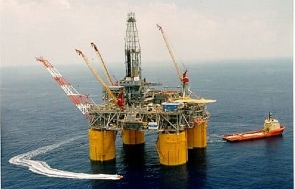Political interference and poor transparency have emerged as the most significant roadblocks to oil exploration in Ghana, as cited by 45 percent of respondents in Deloitte’s ‘Oil and Gas Survey Analysis Report’.
These factors are seen as major barriers to the sector’s growth, affecting decision-making and project implementation. The challenges echo concerns prevalent in other industries, where political influences similarly disrupt operations.
In addition to this major concern, respondents pointed to the country’s limited local capacities – financial, human and technological – which are driving companies toward regional and international collaborations.
Despite the country’s capital market underdevelopment, stakeholders remain optimistic about the potential to raise funds for oil exploration – with a particular focus on leveraging the Ghana Stock Exchange (GSE).
The report also notes that introducing an ‘Emissions Levy’ is reshaping business investment strategies, particularly in waste management. Tax exemptions – including breaks, amnesty and holidays – were identified as crucial government incentives, though challenges such as high processing fees and lengthy approval times continue to burden the sector.
Despite these challenges the industry remains hopeful, with international collaborations and strategic government incentives seen as key to unlocking the sector’s full potential.
The survey, which focused on three main themes – financing and investing in oil and gas, the regulatory landscape and sustainability considerations, had 83 percent of respondents at the executive management level. These included executive and managing directors, chief operating officers and general managers.
Looking ahead, 73 percent of respondents view deepwater basins as offering the most promising opportunities for future exploration. Industry stakeholders believe that with the right investment and strategic management, these deepwater resources could play a critical role in driving the sector’s long-term growth.
On the issue of financing, 40 percent of respondents noted that collaboration between local and regional players would enhance financing for oil and gas. Approximately 60 percent believe indigenous exploration and production (E&P) companies can fund their operations through local capital markets and commercial banks.
Specialised insurance policies were also highlighted by 40 percent as a way to improve the risk appetite of financial institutions in the industry, with hybrid financing ranked as the most effective tool.
In terms of government support, 38 percent of respondents suggested that tax exemptions could help independent oil and gas companies become more competitive in the petroleum sector.
Regarding regulatory challenges, most respondents reported regular engagement with the Petroleum Commission and Ghana Revenue Authority (GRA).
However, 40 percent cited high processing fees as a major hurdle in obtaining approvals. Additionally, 80 percent of respondents noted the need for foreign currency to meet payment obligations – with 87 percent experiencing difficulties in acquiring it.
High exchange rates were the most common issue – affecting 40 percent of those surveyed, while 47 percent believe that improved foreign exchange availability from the central bank would help mitigate these challenges.
Tax-related issues are also prevalent in the domestic petroleum industry, with high tax rates cited as the biggest concern by 46 percent of respondents. Ambiguity in tax compliance and frequent changes in tax policy were also highlighted as major challenges by industry players.
Overall, the report underlined a need for improved governance, strategic investment and better financial structures to unlock the country’s oil and gas sector’s full potential .
Watch the latest edition of BizHeadlines below:
Ghana’s leading digital news platform, GhanaWeb, in conjunction with the Korle-Bu Teaching Hospital, is embarking on an aggressive campaign which is geared towards ensuring that parliament passes comprehensive legislation to guide organ harvesting, organ donation, and organ transplantation in the country.
Click here to follow the GhanaWeb Business WhatsApp channel
Business News of Wednesday, 9 October 2024
Source: thebftonline.com













